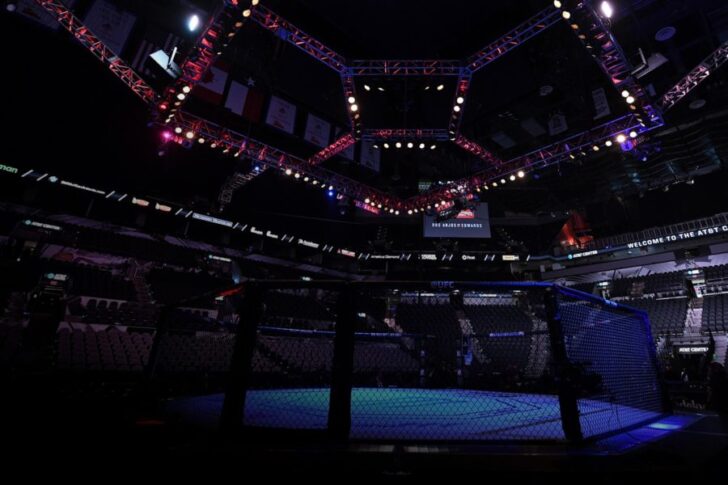It is no secret by now that the coronavirus pandemic has wreaked havoc across the globe. The world has now witnessed entire countries go on full lockdown in a quarantined state.
According to the CDC, the United States has eclipsed the 70 thousand mark for total COVID-19 deaths. However, who knows what the real number is as these figures seem to fluctuate irregularly as our country’s politicians are seemingly raging war upon each other.
What does this have to do with MMA? The answer is, well, nothing but also everything at the same time.
Allow me to explain:
First, the target age range in which the virus is most lethal does not match the participating MMA crowd. By participating, I mean the fighters and coaches themselves. Sure, there are some OG coaches who are outliers in age, but they are the exception.
Second, from the publicly available information, those who are healthy without underlying conditions that have jeopardized their immune systems have a much lower risk level.
Additionally, experts have said that the risk is much higher for someone who is obese or smokes tobacco.
Now, let’s tie all of that together. Active and participating fighters in the MMA community are concentrated mainly in the 18-35-year-old age range who are typically living healthy lifestyles and do not smoke cigarettes.
Active fighters also have to undergo medical testing before every fight, so they at least have a grasp of what their blood work and vitals reflect, and if they weren’t healthy, they wouldn’t be cleared and granted a license to fight.
With that being said, the branching effects of coronavirus are decimating the MMA community. In Colorado alone, there were more than a half-dozen full shows that have been “postponed” indefinitely.
To illustrate an example, let’s just use a six-show model. If we take an average of 12 fights per show, which is 24 fighters, then that means 72 fights with 144 fighters that received the crushing news.
That also means 144 paychecks that are getting cut right now. Yes, amateurs are included in this mix based on ticket sale commission payouts. Sure, promoters have stated that the contracts will be honored once things are back to normal, but for most of these fighters, that paycheck is something they count on after going through fight camps.
For those who are unfamiliar with the grind of a fight camp, let’s break down why it is so devastating financially.
To start, unless you are a high-level UFC or Bellator fighter, the checks are not substantial. Some promotions pay better than others, but even the best local and regional promotions do not payout liveable figures.
So, most fighters have some sort of side job to bridge the gap financially. Based on the rigor of programming set by their coaches, a popular gig for young fighters is in the service industry at restaurants and bars. Well, those have all been shut down from normal operations. Yes, I realize there is a joke of an hourly figure in these positions, but what they rely on to get by is their tips.
During camp, fighters typically work fewer hours so that they can prepare their minds and bodies to perform at peak levels in hopes of getting a win purse to make up for the lost time at work. So, with no fights and no payday, there is another hit to the pocketbook.
Achieving peak performance and maximum output is not free, and it does not come cheap. This applies to both training and recovery. Some of the expenses that a fighter may incur during camp include but are not limited to strength and conditioning, MMA gym dues, nutritionist, quality nutrition, yoga, physical therapy, cryotherapy, medical exams, and more. That list does not include paying your coaches and management, nor does it include travel expenses (if applicable).
Families of fighters and coaches during times like this also feel the effects. Martial arts is an incredible outlet in which most people who have decided to make that walk in the first place had a reason for stepping into a fight gym. Training and gym life is what keeps so many of the people in our MMA community safe and sane. Mental health is a real issue that plagues our community, and that bond that martial artists have with their training partners and coaches is special.
There is no metric to measure this, but gym life has played an instrumental role in getting many people out of dark places filled with substance abuse and suicidal thoughts. Myself included. Fighters who have overcome addiction and have channeled their thoughts and energy through their training no longer have that outlet.
The fulfillment that training provided to fill that void is now gone.
What does this mean? A number of things when combined with financial stress. Relapse and suicide sit at the top of the list. Most people want to be able to earn their living to provide for themselves and their families and feel like a failure when they cannot do so. For someone already struggling with mental health, things may spiral out of control quickly and potentially violently.
If you only take away one point from this, please let it be that you check in on your fellow brothers and sisters in the MMA community. That quick call or text might just save their life.
-Jordan Kurtz is a founding member of Comments From The Peanut Gallery and The MMA Plug and can be followed on Instagram at @CommentsFromThePeanutGallery and @TheMMAPlug303



